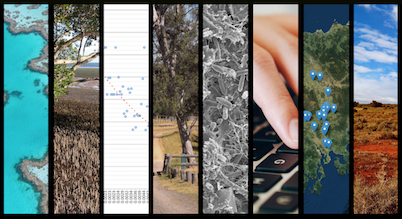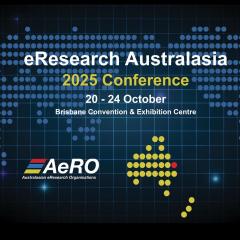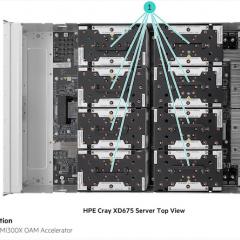 Work started on the Australian Environmental Microbiome Research Data Cloud project last month, which will link significant national biological data sets with national biosciences computational infrastructure and services funded through the Government’s National Collaborative Research Infrastructure Strategy (NCRIS).
Work started on the Australian Environmental Microbiome Research Data Cloud project last month, which will link significant national biological data sets with national biosciences computational infrastructure and services funded through the Government’s National Collaborative Research Infrastructure Strategy (NCRIS).
These data sets map the biology of Australia’s earth and marine environments. They result from several million dollars spent collecting samples, as well as further investment by Bioplatforms Australia (BPA) and others to generate metagenomic data from these samples through the Biomes of Australian Soil Environments (BASE) consortium, and the Marine Microbes (MM) consortium.
Experts from RCC, QCIF, the Centre for Comparative Genomics (CCG) at Murdoch University and Melbourne Bioinformatics at the University of Melbourne will establish a new cloud-based analysis system to make the data easier to find, analyse and interpret for bioinformaticians and non-bioinformaticians alike, both for researchers in the BASE and MM consortia, as well as others.
Dr Andrew Bissett from CSIRO, project co-ordinator of the BASE Data Initiative, said microbes are fundamental to human and ecosystem health. “They mediate biogeochemical and nutrient cycling, are integral to the productions of crops, livestock and textiles, are responsible for disease and its treatment, provide clean drinking water and are the means to mitigate waste and pollution.”
Understanding the combined genetic material of the microorganisms in the environment is of broad national and international utility for researchers, industry and government agencies, but at the moment is primarily only accessible to skilled bioinformaticians.
The Australian Environmental Microbiome Research Data Cloud project will make it easier for all biologists, and others, to interrogate and analyse the data using existing technology platforms, such as BPA’s Data Portal and the Australian-made, RCC-supported Genomics Virtual Laboratory.
The team acknowledge that even with easier-to-access data, training still needs to be a focus of the project. New training materials to accompany the data analysis system will be made freely available for re-use to researchers from universities, industry or government via the EMBL-ABR and EcoEd training portals.
A number of research community representatives will oversee the project, which is building upon past research infrastructure work by experts at RCC, QCIF, QFAB, ANDS, RDS, Nectar, BPA, CCG and Melbourne Bioinformatics.
The project is due for completion by 31 December 2018. Further information and updates will be posted on the project blog.
For more information, please contact RCC Program Manager Dr Jeff Christiansen: j.christiansen@uq.edu.au.



